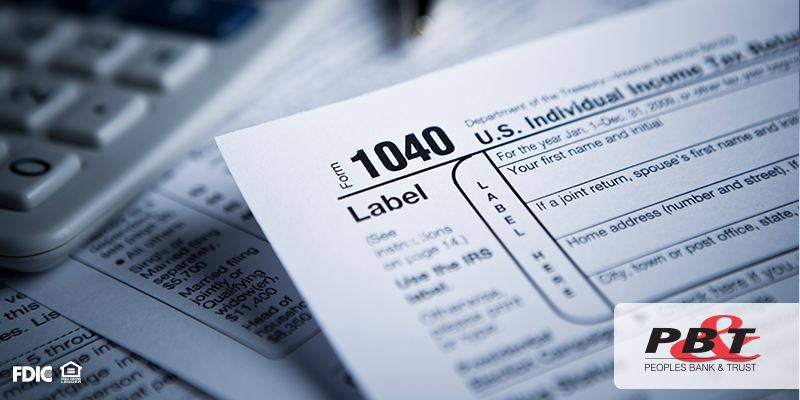
Each year new technology begins to emerge and make an impact on the way we shop, pay, and manage our money. As mobile becomes more relevant, and Americans begin to understand last year’s cybercrime tactics, hackers have already begun using a new bag of tricks and techniques. To help keep both you and your personal information secure, Peoples Bank & Trust wants to share an updated overview of this year’s most common cyber tactics and how to avoid their tempting lures:
- Smishing
Smishing is similar to the more commonly referred phishing tactics, however, in these instances, the initiatives are completed through SMS or text messaging. By incorporating a more personal element, hackers have become more dangerous, claiming to be not-too-distant relatives traveling abroad or in other circumstances of need. Sometimes the phone numbers they use may show up as unknown, and other times they may look like they belong to the relative they are claiming to be. To safeguard against this, we suggest always calling the contact you have for your family member to confirm the proposed narrative and ensure you aren’t being scammed in an attempted hoax.
- IRS Tax Scams
It’s that time of the year, and while many Americans may be waiting until April to file their taxes, countless cyber criminals are already filing fraudulent returns on their behalf. In order to best protect your refund from curious criminals, we recommend filing your federal tax return as soon as you receive all of your filing information from employers and other income sources. While there are many relevant software services to help you file, we always suggest working with a tax professional to ensure you can take advantage of every deduction and new tax regulation.
- Ransomware
In this scenario, cybercriminals enter your computer through a phishing email or other disguised Trojan horse. Through this charade, they are then able to take control of your computer and change passwords or access codes until a ransom is paid. After any ransom is paid, the victims of this crime hope to get their hardware reset to their original passwords, but unfortunately, there are no guarantees. This crime can be extremely difficult due to the fact that once someone has gained access to your device, most often there is no sure-fire way to know they have removed that access unless you purchase a new device or network. To best safeguard against this, we suggest screening all emails and links before opening to be certain they are coming from a credible source.
- False Merchandise
Year after year, online and mobile shopping continues to eclipse the traditional brick and mortar retail revenues. The 2016 holiday season only continued this trend, pushing mobile shopping to propel its largest growth compared to prior years. Unfortunately, these increasing online revenues typically come tied to additional cyber crimes as well. There are many instances where spam sites are created using a misspelled version of a common retailer, enticing users to purchase goods that may not truly exist. In these circumstances, we always recommend searching for the retailer on Google, as national retailers typically have organic or paid listing at the top of the search results.
Continue to learn new ways to protect your information online with our monthly cyber security blog! We’ll show you all the in’s and out’s of a safe network, and personal security.
Peoples Bank & Trust Co.
Member FDIC
Equal Housing Lender




